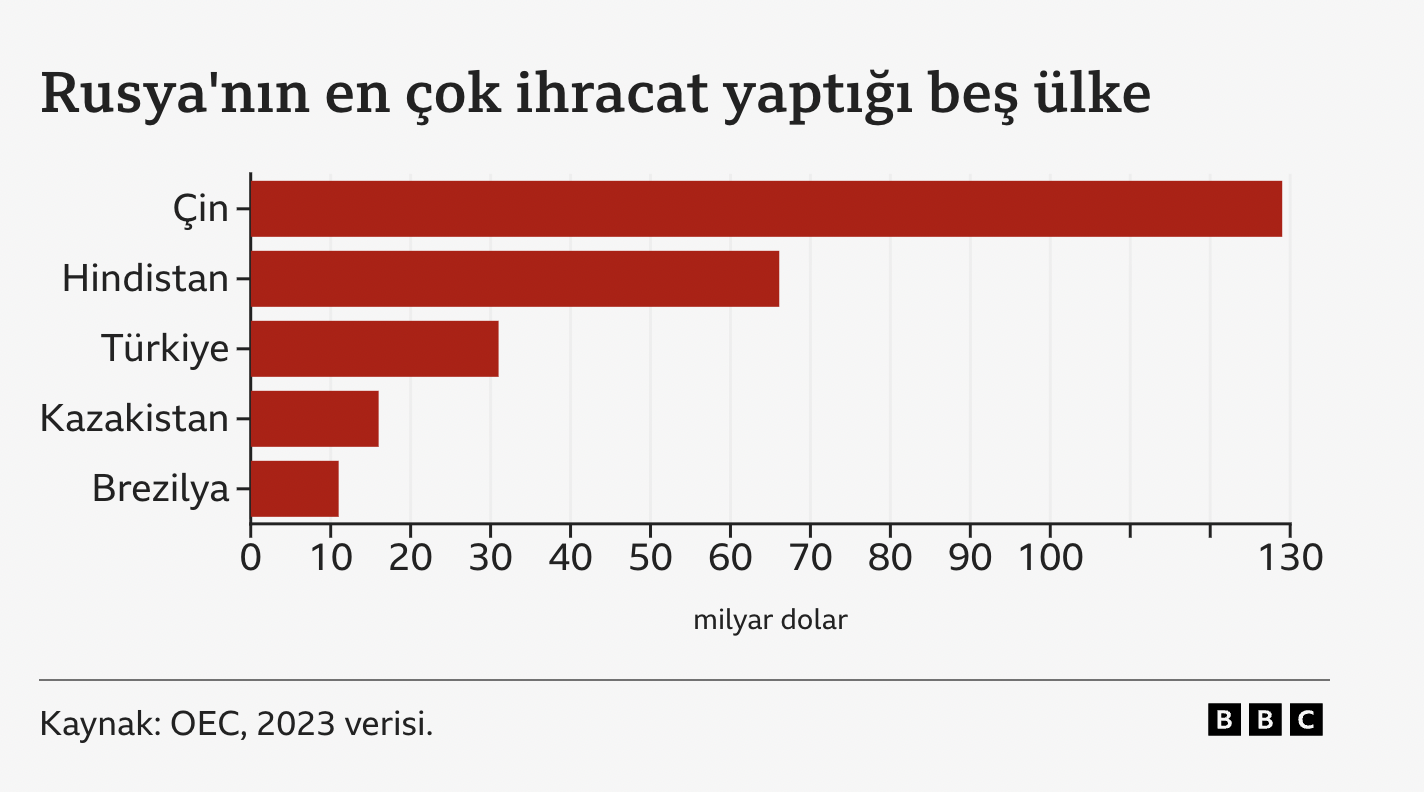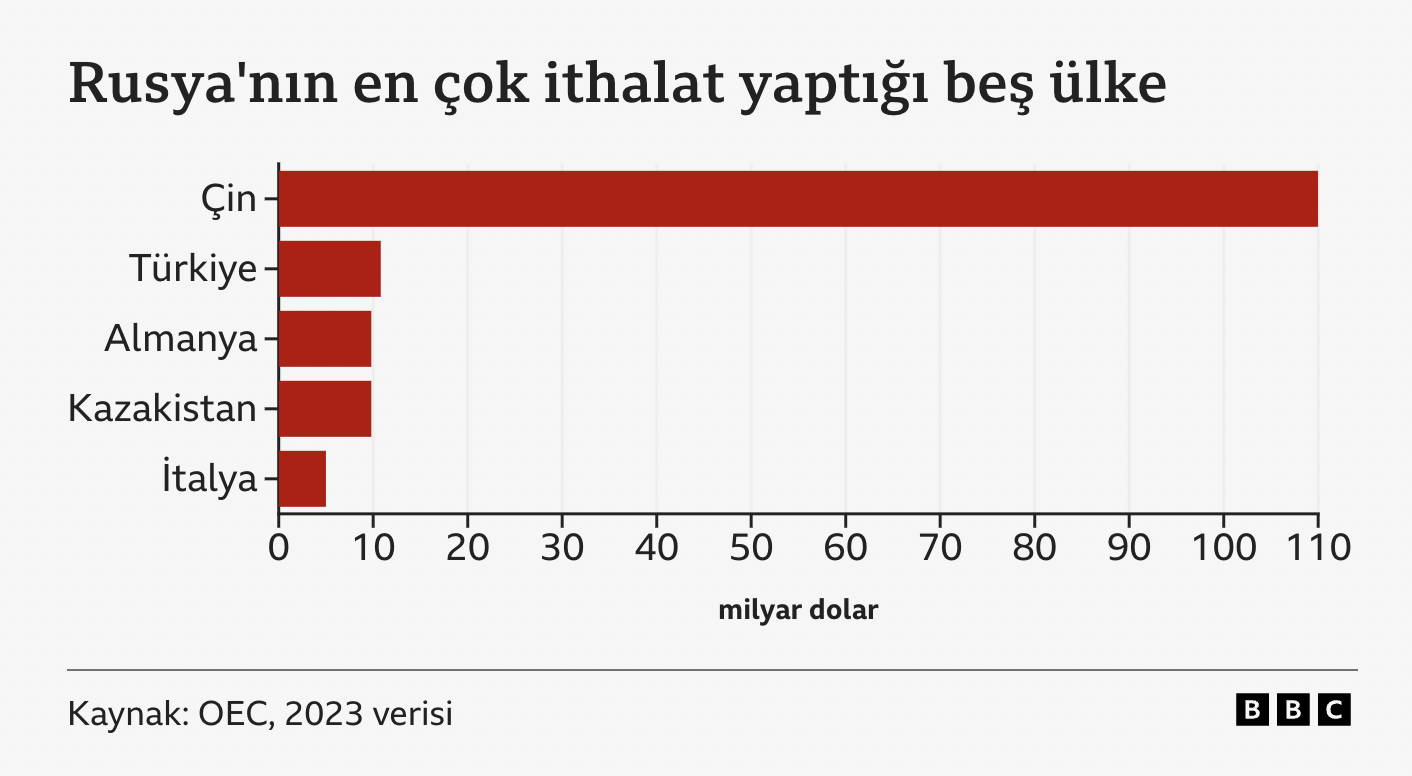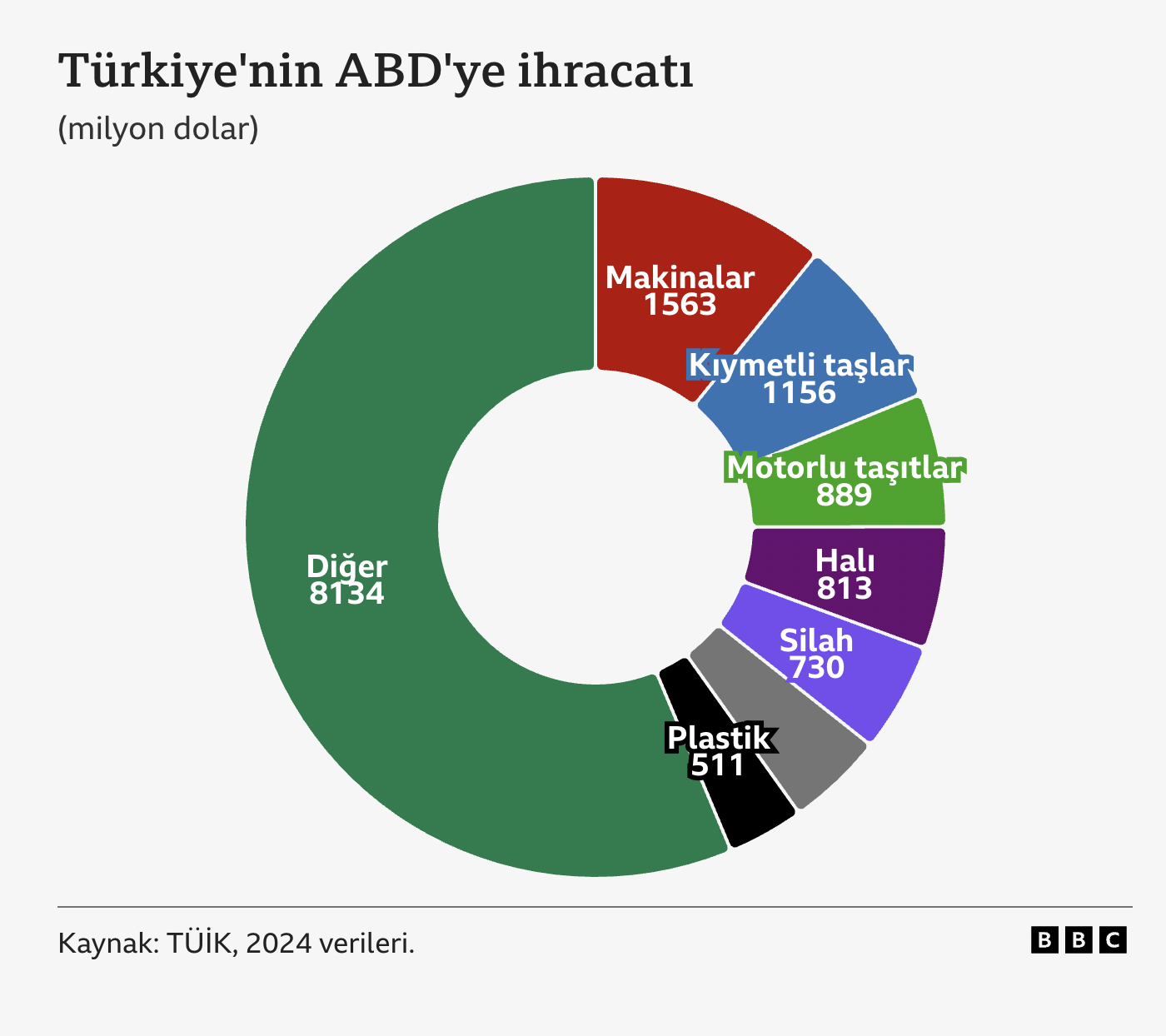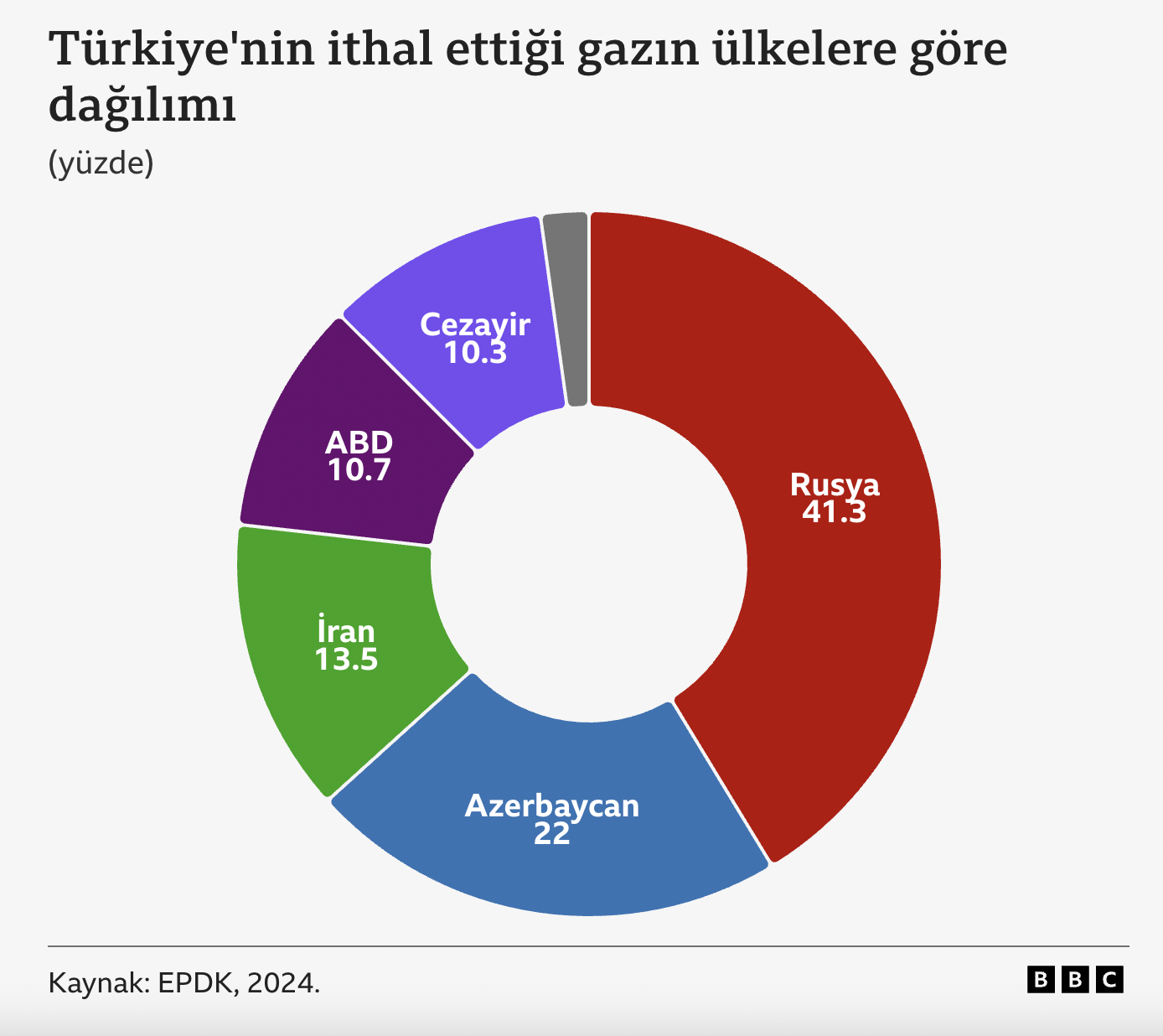Trump threatens Russia with secondary tariffs: How could Türkiye be affected?

Onur Erem BBC Turkish
US President Donald Trump announced that he will impose 100% secondary tariffs on Russia if it does not sign a ceasefire agreement with Ukraine within 50 days.
A secondary customs duty is a tax imposed on other countries that trade with a country.
For example, if a country that buys gas or oil from Russia continues to do so, the products it sells to the US will be subject to a 100% tariff.
With this move, Trump wants to prevent other countries from purchasing raw materials from Russia.
Another goal is to reduce Russia's revenues from gas and oil, which are its most important sources of income.
But this is not easy at all.
Although the European Union (EU) and the United States are gradually cutting imports from Russia, many Asian, African and South American countries continue to buy raw materials from Russia.
If Trump follows through on his threat, these countries will be faced with a difficult choice: continue buying gas and oil from Russia or face tariffs that would make selling products to the United States nearly impossible.
Türkiye is also among the countries in question.
Russia's third-largest trading partner
According to 2023 data from the OEC, which visualizes data on international trade and economic activities, Türkiye is Russia's third-largest trading partner after the world's two most populous countries, China and India.
These are the most recent data from the OEC.
Türkiye is Russia's third-largest export and second-largest import country.
According to data from the Turkish Statistical Institute (TÜİK), the value of fuel Türkiye purchased from Russia in 2024 was over $32 billion.
On the other hand, Türkiye exported $14.4 billion to the United States last year.
Türkiye's top export sectors to the US in 2024 were machinery, precious stones, motor vehicles, carpets and weapons.
A 100% tariff on these sectors could make it impossible for Turkish goods to enter the US market.
However, experts spoken to by BBC Turkish believe that Türkiye could be granted an exception.
Süleyman Ecevit Sanlı, President of the Turkish-American Businessmen Association (TABA), says that Donald Trump imposed customs duties on all countries during his second term as president, but imposed the lowest rate, around 10 percent, on Türkiye.
Sanlı states that negotiations are ongoing to reduce mutual customs duties.
Sanlı emphasizes that Türkiye's oil refineries are dependent on Russian oil and that Türkiye has to import around 400,000 barrels of oil per day from Russia:
"Türkiye has an indispensable relationship with Russia because it is a neighbor. Türkiye also supports Ukraine and is taking initiatives for peace.
"In this sense, I do not think the American administration will take harsh measures against Türkiye.
"Türkiye's need for Russian and Iranian oil and gas in the energy sector has always been tolerated by its allies."
Otherwise, Sanlı says, a 100% tariff would directly prevent Turkish products from accessing the American market.
Good relations between Washington and AnkaraProfessor Mahmut Tekçe of Marmara University's Faculty of Economics says of secondary customs duties, "While on paper they pose a serious risk for energy importing countries like Turkey, how this risk will actually unfold depends on how strictly, quickly, and indiscriminately the U.S. implements this policy."
Professor Mahmut Tekçe reminds us that Türkiye was exempted from secondary sanctions against Iran and Russia in the past.
"Therefore, Türkiye is likely to create a certain amount of flexibility in this process thanks to its diplomatic maneuverability and strategic position," Tekçe says, adding:
"How sanctions are implemented will largely be shaped by the political atmosphere between Washington and Ankara.
"Considering that these relationships are also quite good these days, the risk will probably decrease."
Large compensations may be paidDr. Mühdan Sağlam, an energy policy expert from the TEPAV Energy and Climate Studies Center, also believes that Türkiye would be granted an exemption under the "100% customs duty" scenario, but that things would not come to that point:
"Even though European countries have stopped using it, many partners of the US in Asia, such as Japan, still buy gas from Russia.
"Moreover, Trump's policies are unpredictable. He could announce that he's increasing the 50 days to 150 after a phone call with Putin."
Emphasizing that countries' energy policies are shaped by long-term decisions, Dr. Sağlam says that no country will change its energy policy in 50 days just because Trump wants it:
Energy law is very clear on this matter: Contracts cannot be violated unless there is force majeure, otherwise, large compensation must be paid. The EU, when withdrawing from Russian gas, did not cut off the flow immediately; it chose not to renew the contracts.
Dr. Sağlam, noting that the contract for gas Türkiye receives from Russia via the Blue Stream Pipeline will expire at the end of this year and that the two countries are continuing negotiations for a new contract, responded to the question, "Could the US pressure Türkiye not to renew it?" by saying, "In that case, Turkey could say to the US, 'I can buy gas from you if you give me the same amount of gas at the same price I buy from Russia.'"
According to Dr. Sağlam, Türkiye will follow a wait-and-see policy on this issue.
T24









